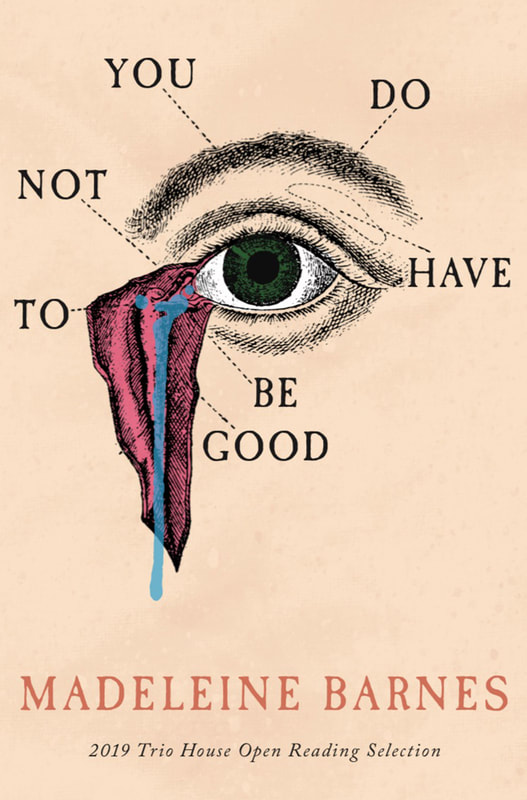|
The Breadcrumbs widget will appear here on the published site.
A Closer ExaminationBy Alex Carrigan It seems like our lives are often dictated by unspoken rules and guidelines. While many of these are taught, there come times where it feels like our lives and identities could be shaped by these more than we realize. It especially doesn't help if we encounter people who espouse these unspoken rules openly, which can cause more internal strife than they realize. Sometimes, it just helps to know that you don't have to make certain choices or be certain people. You Do Not Have to Be Good, the debut poetry collection of Madeleine Barnes, frames itself around this notion. In the collection, Barnes compiles her pieces into categories that all begin with the phrase "You Do Not Have To" and follow with some sort of unspoken rule, action, or goal, such as "Explain Tenderness," "Generate Capital," "Create Paradise," and so on. Each section contains a few poems that play with these ideas, some more directly and others more indirectly. The poems themselves are a blend of Barnes' personal experiences and more abstract ruminations. Barnes' poetry is quite gentle and reassuring, as evidenced in the first poem, "Forty Black Ships." The poem begins "I was dressing her in armor for the war./I guided her feet into bronze socks,/helped her step into netted yellow pants,/tied her shins with quilted grids of gold." While it reads as a direct series of actions, the final stanza reveals the tenderness beneath, as Barnes writes "I was sure that she could not hear me weeping/as I lowered the helmet over her curls/and kissed the heavy visor." As the collection progresses, Barnes begins to incorporated more medical and biological terms in her poems. Pieces like "Psychoanalysis" features lines like "There are indications:/a rush of cortisol down a highway/of parasympathetic nerves, a whole/biological field of moods waiting to be defined." Other pieces are written as responses to a long term disability questionnaire, such as "Are your illnesses, injuries, or conditions related to your work in any way?/I got caught up in the destructive gravity of Sagittarius A* and paid the price." This progression reads as if Barnes is trying to go as deep into herself as possible to find a reason and response to these various quandaries before her. As if explaining everything in medical or scientific terms can help her find the origins, the reasons behind them, and the ways to thrive beyond them. But at the same time, Barnes' poems aren't about directly addressing the reasons You Do Not Have to Be, but merely How You Can Be. Even the titular poem is less about being good, but more about how Barnes sees her father over periods of time, and how his relationship with her and her sisters was earmarked by music and space. "Last summer I saw him/pacing the living room, hands in his pockets,/he was listening to football. He finally looked relaxed." To Barnes, these poems show her approach and how see responds to these characteristics, which results in a collection which may not tell you how to not Be Good or Be Captive or Prove It, but what kind of person sees the world if they are not any of these. You Do Not Have to Be Good is an emotionally imaginative debut, showcasing Barnes' use of lyrical anecdotes to creative a memorable and reflective collection of poetry. The collection is partially dedicated to "all queer disabled women and non-binary folks everywhere," and is one individuals in those categories should seek out. It's a collection that blends a wide emotional spectrum with scientific and medical jargon to create a collection that makes it okay To Be. And even if the reader doesn't fall into those demographics, it's still a marvelous debut that builds vivid scenes and images, told in such language that the reader surely won't forget any time soon.
0 Comments
CommentsYour comment will be posted after it is approved.
Leave a Reply. |
AuthorWrite something about yourself. No need to be fancy, just an overview. Archives
March 2024
Categories
All
|



 RSS Feed
RSS Feed






